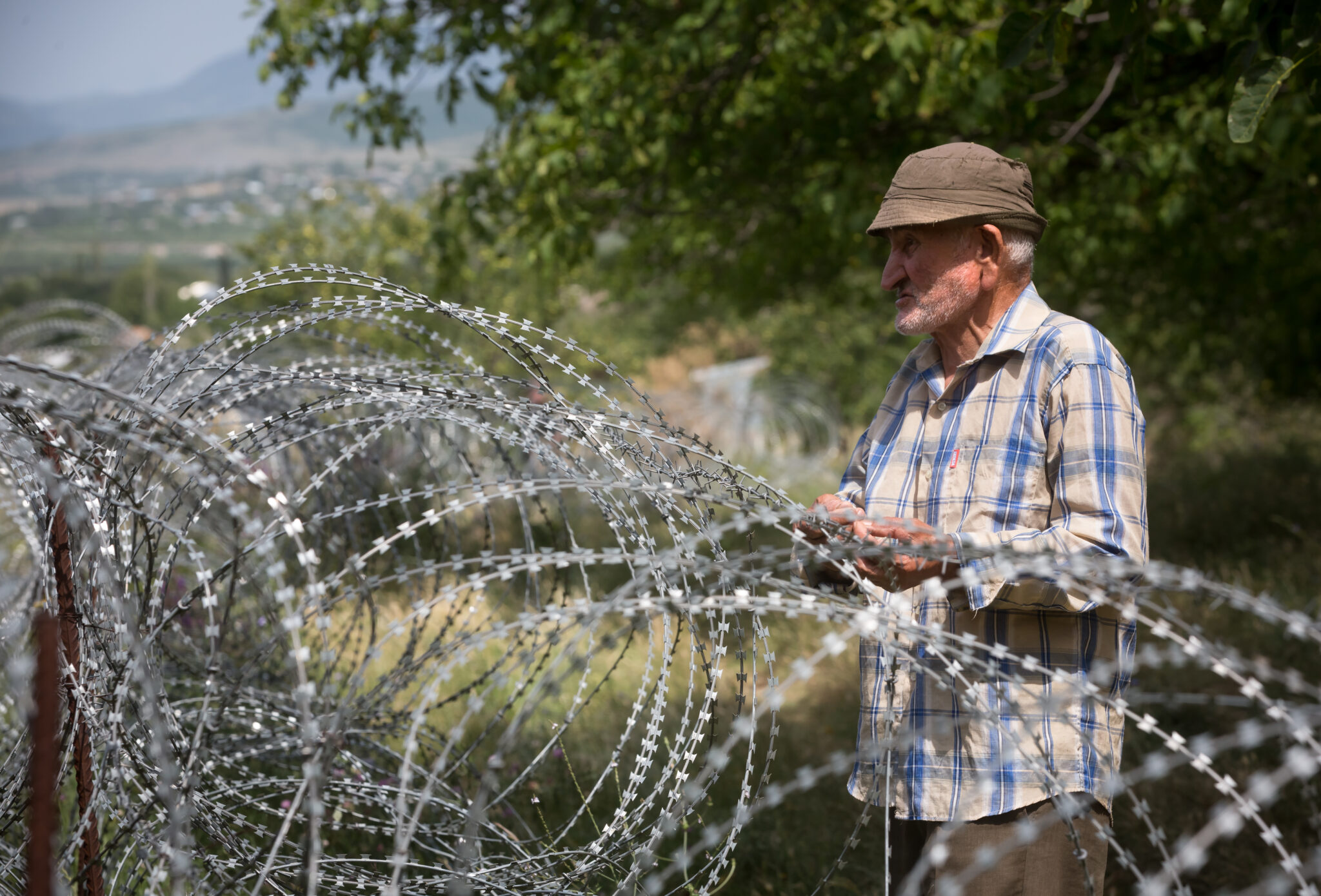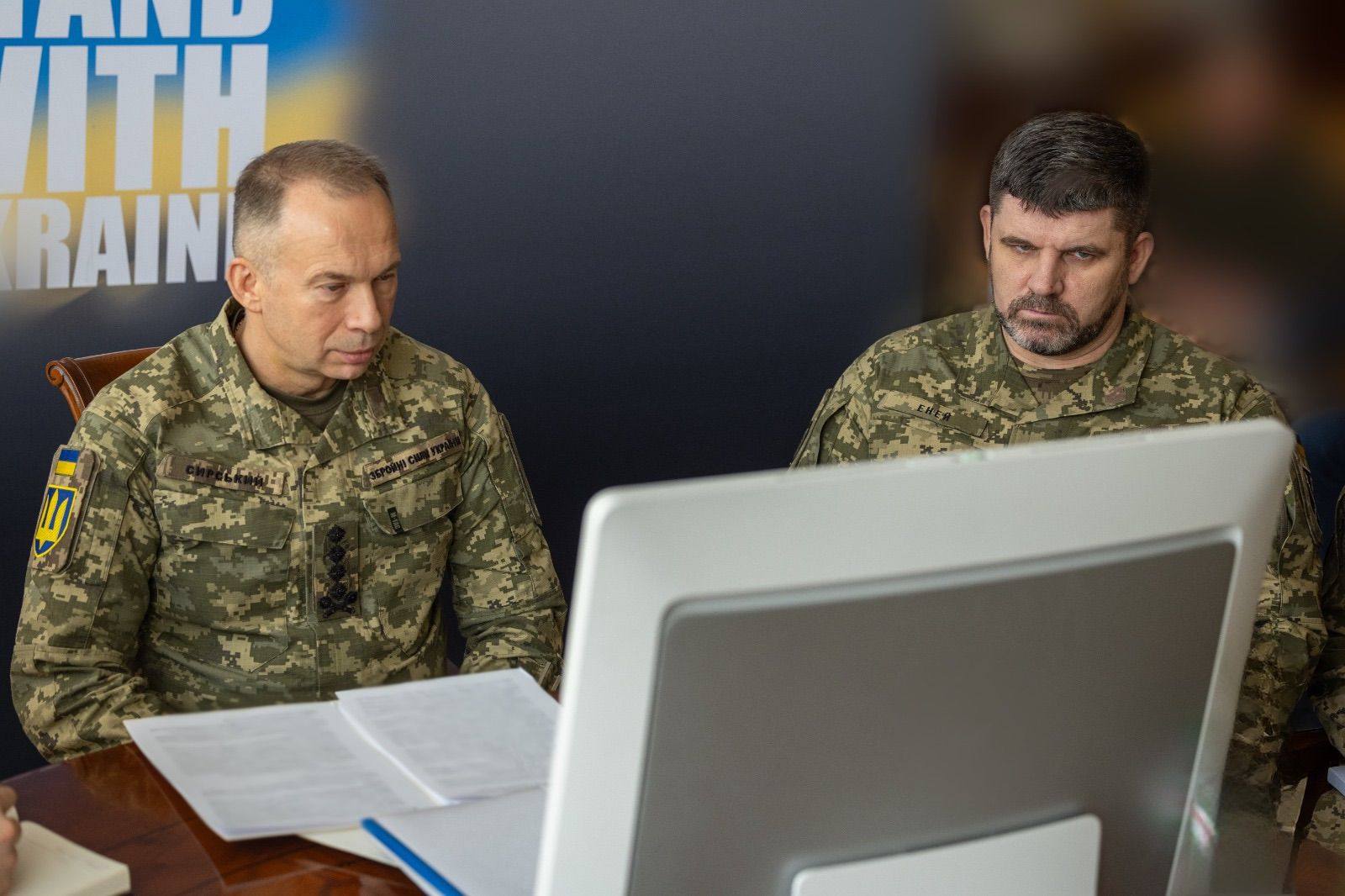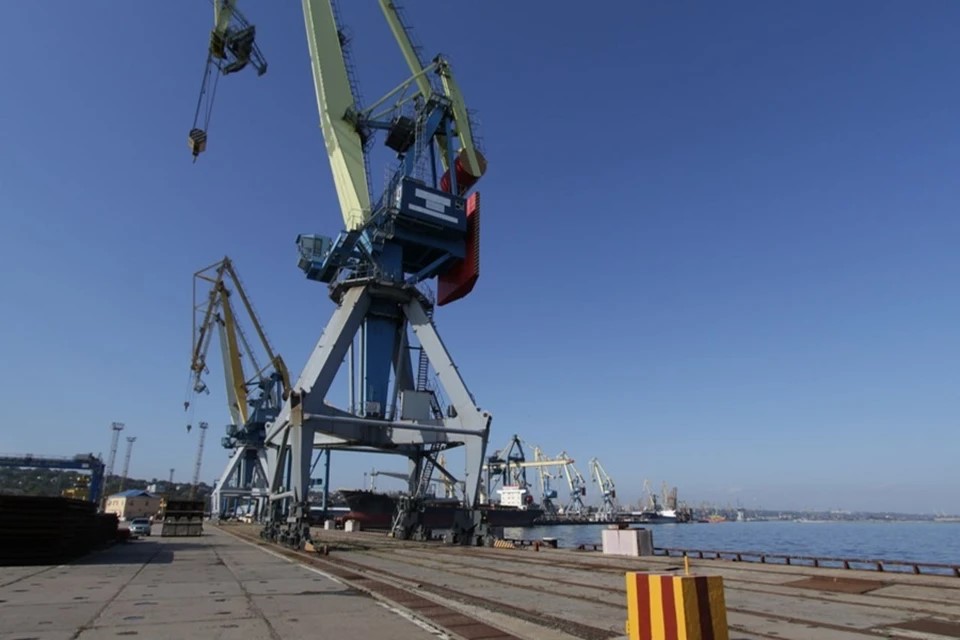Main image: A man standing next to barbed wire on the separation line between Georgia and the breakaway region of South Ossetia in Khurvaleti. Photo: Shutterstock
Since the 2008 Russia-Georgia war, Moscow has launched large-scale psychological operations aimed at undermining Georgia’s sovereignty and strengthening Russia’s influence in the South Caucasus. These operations, coordinated by Russia’s military intelligence agency (GRU), combine physical actions with manipulation of public opinion to instill a sense of helplessness and dependence on Moscow within Georgian society, as reported by New Eastern Europe.
The GRU’s psychological operations include a strategy of creeping annexation along the administrative boundary with the occupied regions of South Ossetia and Abkhazia. Since 2013, Russian and separatist forces have moved border posts, erected barbed wire fences, and repositioned “State Border” signs deeper into Georgian territory—often under the cover of night. As a result, village residents suddenly find themselves on occupied land, losing access to their homes and farmland. In the village of Tamarasheni, for example, farmers were forced to urgently harvest crops under the threat of expulsion.
Beyond "borderization," the GRU employs tactics such as abducting civilians who are then illegally detained for “crossing the border.” In 2017 alone, more than 126 such cases were recorded. These actions not only disrupt individual lives but also generate widespread fear and hopelessness. The strategy is designed to gradually erode Georgia’s will to defend its territory. The lack of a strong international response deepens the sense of abandonment and demoralizes local communities.
After Russia's full-scale invasion of Ukraine in 2022, the Kremlin intensified another psychological campaign—stoking fears of a new war to pressure Georgian society and leadership. The GRU propagated the narrative that Georgia’s pursuit of NATO or EU membership would inevitably lead to a repeat of the 2008 scenario. In 2024, billboards appeared in Georgia comparing peaceful Georgian cities to destroyed Ukrainian ones, aiming to frighten the public. Movements of Russian troops near the occupied territories further heightened the perceived threat. Through state-controlled media and official statements, the Kremlin accused the West of allegedly preparing a “Tbilisi Maidan,” presenting Russia as the sole guarantor of stability.
A third major GRU operation seeks to undermine Georgian confidence in the possibility of resisting Moscow. Russia continues to push the narrative of its invincibility, insisting that resistance is futile and that it has a legitimate right to dominate the South Caucasus. This myth is reinforced not only through propaganda but also through tangible actions—such as transferring strategic assets in Abkhazia to Russian control—demonstrating the Kremlin’s ability to entrench itself on Georgian soil without consequences. Anti-Western narratives are widely disseminated via dozens of Russia-backed organizations and media outlets in Georgia, which justify the occupation and blame the West for provocations. Claims that Russia’s actions in Georgia and Ukraine are “defensive measures” aim to shift responsibility for aggression and destruction onto Western countries.
Economic dependency is another lever of pressure: trade volume between Russia and Georgia reached nearly $2.4 billion in 2023—up 47% from 2021—strengthening Moscow’s influence over Georgia’s economy and disheartening those advocating for Euro-Atlantic integration.
The GRU plays a central role in coordinating all these psychological operations, combining disinformation, cyberattacks, and the use of proxy structures to amplify their effect. Its experience in hybrid warfare allows Russia to systematically erode Georgian confidence in a future without Moscow.
Since 2013, these operations have become a constant instrument of pressure on Georgia, pushing the country to choose between subordination to Russian interests or seeking more decisive international support to preserve its independence and democratic aspirations.





















